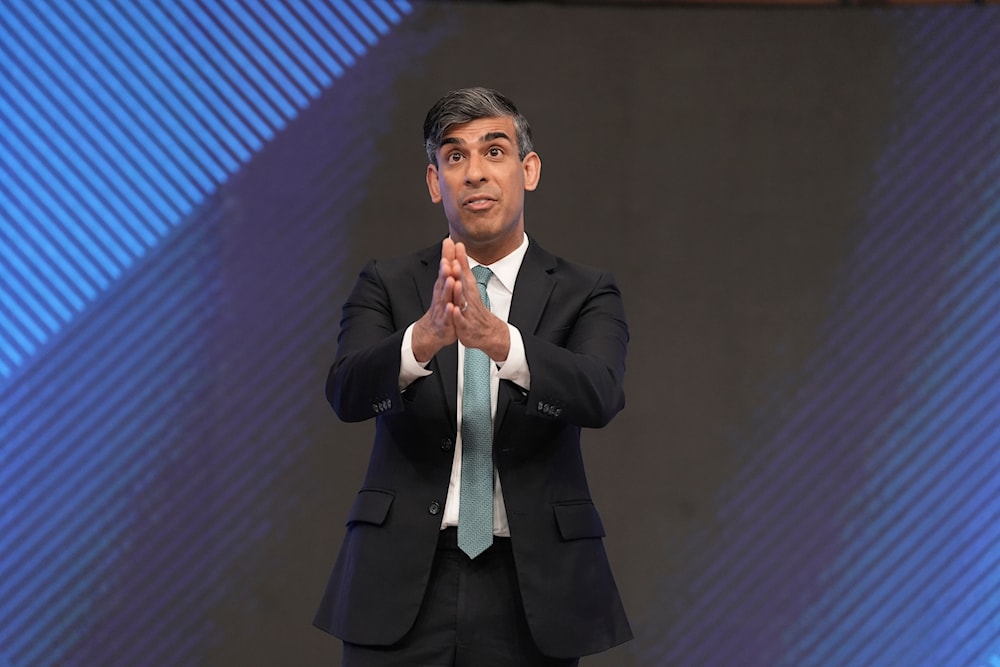UK Tories facing 'electoral extinction', surveys show
The United Kingdom's Conservative Party is facing growing unpopularity amid numerous political and economic crises in the country.
-

Britain's Prime Minister Rishi Sunak addresses the audience during the Sky News election debate in Grimsby, England, June 12, 2024 (AP)
A new poll conducted by British research firm Savanta that was released on Sunday indicates that 46% of Britons now support the Labour Party led by Keir Starmer. This marks a two-point increase from a previous poll conducted five days earlier. On the other hand, support for the Conservative Party has dropped by four points to 21%.
Three recent public opinion polls present a grim outlook for the Conservative Party, led by current Prime Minister Rishi Sunak. One of the polls warns that the party faces an "electoral extinction" in the upcoming elections scheduled for July 4.
The Labour Party's 25-point lead is the largest since former Prime Minister Liz Truss's tenure. Truss's tax-cutting plans had previously caused a sell-off of British government bonds, leading to higher interest rates and forcing the Bank of England to intervene.
Chris Hopkins, Director of Political Research at Savanta, stated that the research suggests these elections "could be an electoral extinction event for the Conservative Party."
A separate survey conducted by Survation, and published by The Sunday Times, predicts that the Conservative Party will end up with just 72 seats in the House of Commons, which consists of 650 members. This would be the lowest number in its nearly 200-year history. In contrast, the Labour Party is projected to win 456 seats.
Another poll by Opinium, conducted for The Observer, shows Labour with 40% support, the Conservatives with 23%, and the Reform Party with 14%, indicating that both major parties are losing ground to smaller competitors.
These polls come in the midst of the election campaign and shortly after both the Conservatives and Labour unveiled their electoral programs. They also arrive just before voters begin receiving their postal ballots.
On May 22, Prime Minister Sunak surprised many in his party by announcing early elections, contrary to widespread expectations that he would wait until later in the year to allow time for improving living standards after the UK struck its highest inflation rate in 40 years.
Rishi Sunak was elected by Conservative MPs as their new leader in October 2022 after Liz Truss resigned from the premiership just weeks following her election.
Under his leadership, the country has witnessed a sharp drop in inflation along with decreasing consumer prices.
Despite this, the UK is ranked as the weakest economy among Western European countries and is forecasted to remain so due to high interest rates and the lasting impacts of last year's inflation surge.
Earlier in May, the OECD said that the UK will plunge to the bottom of G7 economic growth rates in 2025 with a growth of 1%, directly behind Germany at 1.1%.
Meanwhile, the US and Canada will top the chart as the fastest-growing member economies at 1.8% for both.

 3 Min Read
3 Min Read










